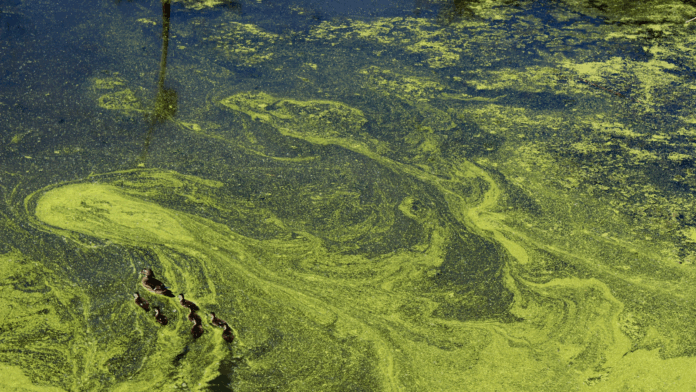AHS issued a health advisory for Moose Lake after cyanobacteria, known as blue-green algae, was found in the water.
A notice released on July 7, Alberta Health Services warned visitors and residents to avoid contact with the visible algae blooms and to keep pets and livestock away from the water. “If contact occurs, wash with tap water as soon as possible,” reads the advisory.
People should not swim, wade, or allow animals in the water where algae is visible. “Do not feed whole fish or fish trimmings from this lake to your pets,” according to AHS. “Consider limiting human consumption of whole fish and fish trimmings from this lake, as it is known that fish may store toxins in their liver.”
Residents are also reminded to never drink or cook with untreated water from any recreational body of water including Moose Lake. “Boiling of this water will not remove the toxins produced by cyanobacteria. An alternate source of drinking water should also be provided for pets and livestock while this advisory is active,” said AHS.
Blue-green algae looks like scum, grass clippings, fuzz or globs on the water’s surface, and may be blue-green, brown, or even pinkish-red with a musty or grassy smell. Exposure can cause skin irritation, rash, sore throat, sore red eyes, swollen lips, fever, nausea and vomiting and diarrhea.
“Symptoms usually appear within one to three hours and resolve in one to two days. Symptoms in children are often more pronounced; however, all humans are at risk of these symptoms. Exposure to the bacteria may be fatal to pets,” reads the advisory.
Recreational use of parts of the lake where no algae is visible is still considered safe during the advisory.




